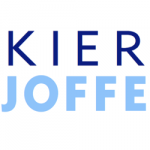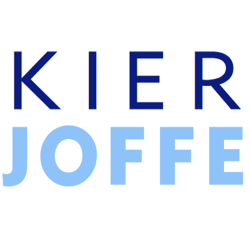Argentina EB5 VISA USA Abogados Buenos Aires Argentina Attorneys at Law in Buenos Aires Argentina
Nuestros abogados de inmigración cuentan con la preparación y experiencia necesaria para responder a todas las preguntas relacionadas con inmigración y resolver problemas con comprensión y dedicación.
La asesoría legal eficaz acerca de la inmigración se basa en la respectiva situación personal y profesional de cada cliente, así como en sus metas a largo plazo para vivir y trabajar (o bien jubilarse) en los Estados Unidos. Existen varias posibilidades para visas y tarjetas de residencia, algunas de las cuales pueden aplicarse a la situación y a las metas del solicitante.
Si usted desea recibir una visa de inversionista, una tarjeta de residencia a través de un Centro Regional EB-5 para inversionistas, una visa basada en el empleo (visa de trabajo) o una tarjeta de residencia permanente al ser transferido(a) por una compañía o en virtud de sus habilidades extraordinarias, o si califica para emigrar en base al matrimonio con un ciudadano de los Estados Unidos o a través de sus lazos familiares, resulta conveniente planear el caso con estrategia y orientación legal eficaz para asegurar que las necesidades (tanto suyas como las de sus dependientes) se reúnan a largo plazo.
Ayudando a empresarios y negocios argentinos
Mediante tratados negociados con Argentina, Estados Unidos ofrece a los ciudadanos argentinos la posibilidad de solicitar visas de comerciantes E-1 y visas de inversionistas E-2 en el marco del tratado.
Kier Joffe proporciona asistencia a muchos tipos de empresas y de empresarios para que obtengan y amplíen sus negocios en Estados Unidos. Ayudamos a nuestros clientes en todas las etapas del proceso de apertura y de expansión de empresas en EE.UU. y tenemos un impresionante historial de éxitos
EE.UU. Visa Argentina – EB5 Visa Argentina
Visas de inversionistas EB5 se aplican con mayor frecuencia para los individuos extranjeros ricos que quieren trasladar a su familia a los EE.UU. o grandes corporaciones extranjeras que deseen establecer una fuerte presencia comercial en los EE.UU.. Los ciudadanos de cualquier país pueden calificar para solicitar una visa de inversionista EB-5.
Inversionistas EB5 aprobada recibirá una tarjeta verde de Estados Unidos y son elegibles para solicitar la ciudadanía estadounidense después de residir permanentemente en los EE.UU. durante 6 meses o más durante 5 años consecutivos.
Existen diferentes tipos de opciones de inversión que pueden calificar para el estado de visa de inversionista EB-5 de la siguiente manera:
Invertirá $ 500.000 en una empresa comercial en un área de empleo que beneficiará a la economía estadounidense y crear al menos 5 a tiempo completo empleos en Estados Unidos;
Invertir $ 1.000.000 en una empresa comercial que beneficiará a la economía estadounidense y crear al menos 10 puestos de trabajo a tiempo completo de Estados Unidos; Oregón
Invertirá $ 500.000 en un centro de inversión EB5 regional en un área de empleo.
La aplicación más simple y común visa de inversionista EB-5 implica una inversión de $ 500.000 en un centro regional de inversiones EB5. El inversionista EB5 no está obligado a ser activos en el negocio si una inversión de $ 500.000 en un centro regional de inversiones EB5. Por lo tanto, el inversionista EB-5 es “simplemente” la compra de una tarjeta de residencia para ellos y sus familiares directos (cónyuge e hijos).
EB5 centros regionales de inversión en general, son las grandes empresas privadas que han fijos proyectos a largo plazo o la intención de vender el negocio de venta privada o la oferta pública dentro de 5 años o menos. Por lo tanto, se requiere que los inversionistas EB5 para mantener su inversión de $ 500.000 en el centro regional de inversiones por un mínimo de 5 años y luego ese dinero se suele volvió con interés o una participación en los beneficios.
El único problema con este tipo de aplicaciones EB5 centro relacionadas con la inversión regional es el solicitante deberá acreditar que los 500.000 dólares procedían de fuentes lícitas. Ejemplos de fuentes legales serían de empleo, un negocio, herencia, donación, préstamo, etc. Sin embargo, tenga en cuenta que la “fuente original” de ese dinero debe ser legal también. Por ejemplo, un traficante de drogas conocido no podía don dinero obtenido por el tráfico de drogas a su hijo y luego tener tal hijo usar ese dinero para invertir en un centro regional de inversiones EB5 como tal sería una fuente de “ilegal” de fondos.
EB5 centros regionales de inversión no garantizan su dinero porque al igual que todas las inversiones, tales inversiones EB5 también vienen con “riesgo”. Sin embargo, todos los centros regionales de inversión EB5 deben pasar por el escrutinio y revisión exhaustiva de su plan de negocios por el USCIS antes de que puedan ser aprobadas como EB5 centro oficial de la inversión regional.
Por lo tanto, la mayoría de los centros regionales de inversión EB5 son una apuesta segura, pero es “siempre” recomendaría que hacer a fondo la debida diligencia antes de comprometer sus fondos a cualquier inversión. Nuestros abogados pueden ayudar con la elección de un centro regional de inversiones EB5 que se ajuste a las necesidades de los clientes, actuando como su representante en contacto con los centros regionales de inversión EB5.
El USICS mantiene una lista de numerosos centros regionales “aprobados” EB5 de inversión que se pueden encontrar haciendo clic aquí.
Tenga en cuenta que hay una cuota anual de sólo 10.000 visas de inversionistas EB5 anuales puestos a disposición de todo el mundo a los extranjeros.
Solicitudes de visado inversionista EB5 normalmente tienen 3-6 meses dependiendo de la integridad de los documentos justificativos y la carga de trabajo de la Embajada de Estados Unidos en el país de residencia.
Free, confidential consultation
We understand how daunting it can be to choose a lawyer in Argentina from another country. Please feel free to contact us with any questions, or to discuss retaining our legal services.
We offer a free initial consultation on your legal matter, with full protection of attorney-client confidentiality, as required by Act number 23,187 section (6) subsection (f).
“Give us a call today, or just fill out the Quick Contact Form on the right, and we will get back to you.”
USA: +(1) 212.300.6377
ARG: +(54) 115.218.3100


